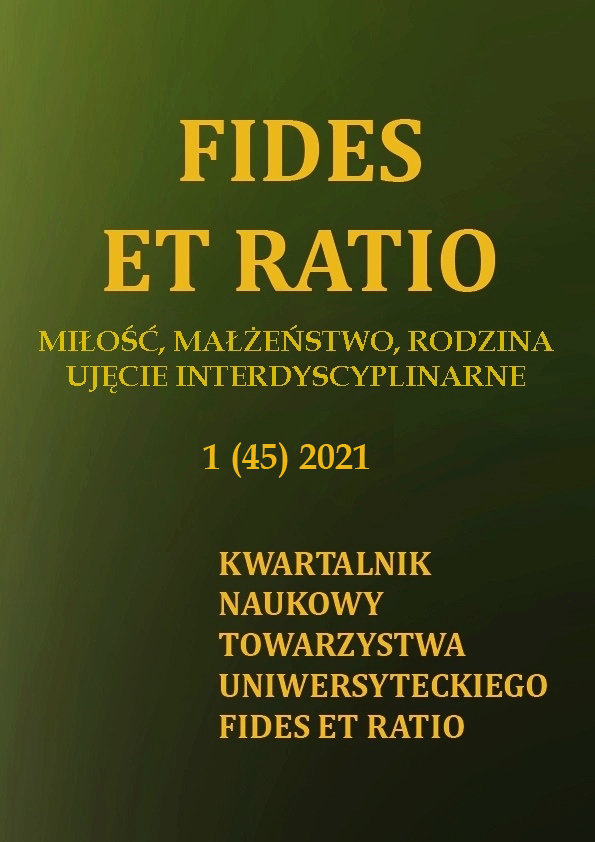Abstract
Economic migrations are a phenomenon that extends to many Polish families, causing changes in their structure and functioning. The effects of migration that affect the lives of children and young people brought up in transnational families seem to be particularly important.
Children from transnational families have specific family experiences because they are related to the economic migration of one of the parents, which is associated with his longer absence. The motives for the trip, time of separation, and everyday life in each transnational family are different, therefore children from these families have various life experiences and create images of family life in various ways.
References
Ambert, A.M. (1994). An international perspective on parenting: Social change and social constructs, Journal of Marriage and Family, 3, 529-543.
Baldassar, L., Merla, L. (2013). Transnational Families, Migration, and the Curcilation of Care. Understanding Mobility and Absence in Family Life, New York: Routledge.
Beck, U., Beck–Gernsheim, E. (2013). Miłość na odległość. Modele życia w epoce globalnej, Warszawa: Wydawnictwo PWN.
Beisert, M. (2000). Rozwód. Proces radzenia sobie z kryzysem, Poznań: Wydawnictwo Fundacji „Humaniora”.
Bryceson, D., Vourela, U. (2002). Transnational Families in the Twenty – First Century, New York: Oxford.
Chee, M.W. (2005). Taiwanese American Transnational Families Women and Kin Work, New York: Routledge.
Dąbrowska, A. (2016). Rodzina migracyjna w przestrzeni życiowej dorastających. Holistyczny model wsparcia, Warszawa: Wydawnictwo PWN.
Danilewicz, W. (2005). Dziecko w rodzinie rozłączonej. (w:) J. Bińczycka, B. Smolińska–Theiss B. (red.), Wymiary dzieciństwa. Problemy dziecka i dzieciństwa w zmieniającym się społeczeństwie, 135-134. Kraków: Oficyna Wydawnicza Impuls.
Danilewicz, W. (2010). Rodzina ponad granicami, Białystok: Wydawnictwo Trans Humana.
Lutz, H. (2011). The New Maids: Transnational Women and the Care Economy, London: Zed Books.
Melville, M. (1992). Mexican women in the U. Wage Labour Force, (in:) Mellvile M. (ed.) Mexicanas at Work in the United States, 231-240, Houston: Mexican Amer Studies Program.
Nosek, K. (2018). Migracja zarobkowa a poczucie jakości życia rodzin transnarodowych, Olsztyn: Centrum Badań Społecznych UWM.
Parrenas, R. (2001). Servants of Globalization: Women. Migration and Domestic Work, Standford: Standford University Press.
Thomas, W., Znaniecki, F. (1976). Chłop Polski w Europie i Ameryce, Tom 1. Warszawa: Wydawnictwo IFiS PAN.
Tyszka, Z. (2001). System metodologiczny wieloaspektowej integralnej analizy życia rodzinnego, Poznań: Wydawnictwo Naukowe UAM.
Walczak, B. (2014). Dziecko, rodzina i szkoła, wobec migracji rodzicielskich: 10 lat po akcesji do Unii Europejskiej, Warszawa: Pedagogium WSNS.
Walczak, B. (2016). Rodzina transnarodowa. Konteksty i implikacje, Warszawa: Wydawnictwo Scholar.
Wałęcka-Matyja, K. (2006). Jakość życia rodziny osieroconej, (w:) T. Rostowska (red.), Jakość życia rodzinnego. Wybrane zagadnienia, 11-28, Łódź: Wyższa Szkoła Informatyki w Łodzi.

